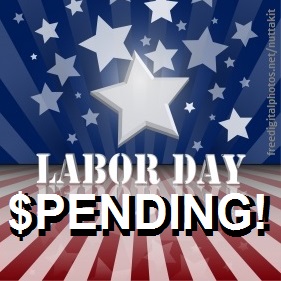 Everybody likes stuff. And we like it even better when it’s free. I do, anyway! If you like stuff and you don’t want to pay for it, then check out this timely article at Kiplinger.com entitled, “Fabulous Freebies — Valuable Things You Can Get for Free.” The list of 69 things carries the disclaimer, “We don’t allow any useless junk on our list, only quality goods and services that you would happily pay good money for (or perhaps you already are.”)
Everybody likes stuff. And we like it even better when it’s free. I do, anyway! If you like stuff and you don’t want to pay for it, then check out this timely article at Kiplinger.com entitled, “Fabulous Freebies — Valuable Things You Can Get for Free.” The list of 69 things carries the disclaimer, “We don’t allow any useless junk on our list, only quality goods and services that you would happily pay good money for (or perhaps you already are.”)
Here are some highlights:
- Baby Stuff
- Beauty Stuff
- Sample Stuff
- Pet Stuff
- Medical Stuff
- Diet and Fitness Stuff
- Travel Stuff
- Cultural Stuff
- Recreation Stuff
- Hobby Stuff
- Entertainment Stuff
- Education Stuff
- Computer Stuff
- Financial Stuff
- Retirement Stuff
…and on and on (and on!) If you have some “Free” time, check out the original article. And if you don’t have any free time, then make some…it’s free! How about you? Have you tripped across any valuable freebies? Let us know over at the MindField Online Facebook page, and have a nice weekend!









